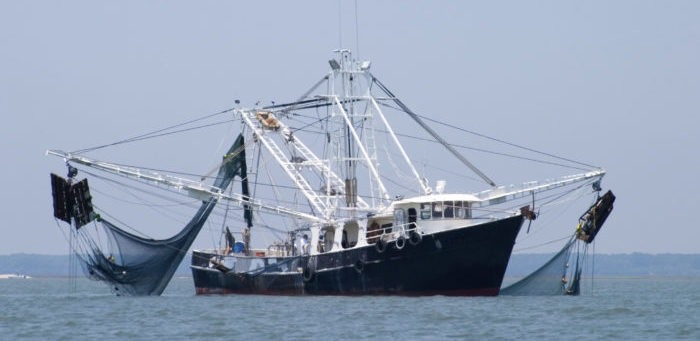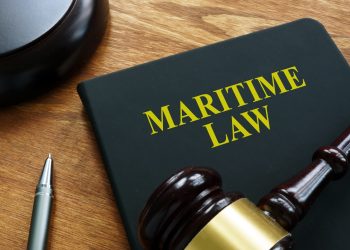The US Department of Justice announced that in federal court, the captain of a commercial trawler pleaded guilty to federal charges regarding the illegal harvest and sale of Atlantic Striped Bass from federal waters off the coast of North Carolina in 2010.
According to information in the public record, in February 2010, a special agent with the National Oceanic and Atmospheric Administration (NOAA) received information that commercial trawlers were illegally fishing for Atlantic Striped Bass in federal waters off the coast of North Carolina. Since 1990, there has been a ban on harvesting Atlantic Striped Bass from the United States’ Exclusive Economic Zone (EEZ), which includes waters located three to 200 miles seaward of the U.S. coastline. Upon receiving the information, NOAA engaged the assistance of the U.S. Coast Guard. A single patrol vessel in the area intercepted one of 17 commercial trawlers in the EEZ, the fishing vessel Lady Samaira, boarded the vessel and found 173 Atlantic Striped Bass. The captain later admitted to taking the fish from the EEZ.
Given the other commercial trawlers in the same area, NOAA conducted an analysis of electronic data and written reports from those vessels. Based on its review, NOAA determined that during the North Carolina 20-day ocean trawl season in January/February 2010, Craddock, then Captain of the 74-foot commercial fishing vessel Capt Ralph, harvested over 12,000 pounds of Atlantic Striped Bass. Further analyses revealed that between Feb. 1, 2010, and Feb. 4, 2010, Craddock, harvested 1,750 pounds of Atlantic Striped Bass from the EEZ, with an estimated fair-market retail price of approximately $14,000, which he sold to a dealer in Wanchese, North Carolina. Craddock sent an e-mail to another vessel through the Capt Ralph’svessel monitoring system and admitted to catching the Atlantic Striped Bass south of Buoy No. 8. Bodie Island Lighted Buoy No. 8 is located 6.5 nautical miles from shore, in the EEZ. The vessel monitoring system data from the Capt Ralph further corroborated the illegal harvesting of the fish. Craddock then made false statements to NOAA, concealing the true location of the harvest in his federal vessel trip reports.
“Fishing for striped bass in federal waters in violation of this longstanding and well-known moratorium has the potential to seriously impact this iconic species, to the detriment of the many honest commercial and recreational anglers who depend upon this fishery,” said Assistant Attorney General John C. Cruden for the Environment and Natural Resources Division. “Today’s plea agreement demonstrates the department’s commitment to pursuing those who fail to respect laws enacted to protect and conserve important marine resources.”
A sentencing hearing has been scheduled for March 27, 2017, term of court. Craddock faces a maximum sentence of five years in prison and a $250,000 fine.
The overall investigation was conducted by the Law Enforcement Offices of NOAA, with assistance of the Investigative Service from the U.S. Coast Guard, the North Carolina Marine Patrol and the Virginia Marine Police. This case is being prosecuted by Trial Attorneys Shennie Patel and Joel La Bissonniere of the Justice Department’s Environment and Natural Resources Division’s Environmental Crimes Section and Senior Litigation Counsel Banumathi Rangarajan of the U.S. Attorney’s Office for the Eastern District of North Carolina.
Source: US Department of Justice






























































